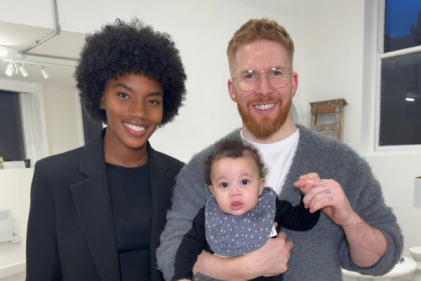Sleep sharing is, quite simply, sharing a bed with your baby, instead of having him or her sleep in his or her own bed. It may seem outdated, but even in developed countries there’s an increase in the number of babies less than 7 months who sleep with their parents.
Sleep sharing is not for everyone though. It depends on your family, your personal choice, and of course, how safe it will be for your baby. Some babies do better sleeping with their parents, while others seem to prefer sleeping alone.
Of course, there are other considerations. Your relationship, for instance, may suffer. It’s harder to be intimate with your partner when you have a baby in your bed! That does take the spontaneity out of sex, but then again, you can always plan around it.
At the other end of the spectrum, there’s the fact that you’re likely to bond more with your child if you allow them to sleep in your bed and it makes breast (or bottle) feeding a lot easier. It also, however, makes weaning your baby harder.
Choosing to sleep share should be something you do as a family, since it will impact you as a family. If you want to, but your partner doesn’t, there could be dissention. If you’re unsure, or your partner is, speak to people who sleep share, or try it out for a week or two to see how it works for you. You also shouldn’t assume that every baby sleeps better when they sleep share. Many do, but some also prefer to sleep alone, so even if you and your partner agree, it might not be for you.
Experts are also divided on how sleep sharing affects your child. Some say it makes for a better adjusted and more secure child, while others feel it leads to dependence. Others are undecided either way. Most agree that it’s a personal choice and that it does make getting your child to sleep on his or her own later a little harder than usual.
There are warnings against sleep sharing, with US organisations like the AAP (American Academy of Paediatrics) saying that it increases the risk of SIDS, strangulation or suffocation, while others disagree. There are certain safety guidelines that most agree on though. These include:
- Not smoking in the bedroom
- Childproofing your bedroom. Remember your baby won’t remain immobile for long
- Avoid sleep sharing if you are overweight, as this can increase your child’s risk of injury
- Don’t drink or take drugs and then sleep share with your child
- Keep older children and pets out of your bed
- Don’t sleep with clothing that has long cords, or with jewellery
- Make sure that your baby only sleeps on a firm and flat mattress. Couches and other surfaces are not safe
- Place your mattress on the floor, or install mesh bed rails. Stuff any gaps between your bed and the wall with rolled up towels
- Avoid slatted head and foot boards
- Keep lamp and blind cords and other potentially harmful items well away from your bed
- Make sure that your fitted sheets can’t be pulled loose, that blankets, duvets and comforters are well away from your baby’s face, and that you don’t use sheepskin mattress covers
- Dress your baby in lighter clothes than you would if he or she were sleeping alone. Remember that babies overheat faster than adults do
If you’re worried about safety, or anything else, then there are alternatives to sleep sharing. You could get a ‘co-sleeper’ that lets your baby sleep in a crib attached to, and level with, your bed, or you could place a crib or bassinet in your room. Either of these are recommended by groups like the AAP who are against sleep sharing.



